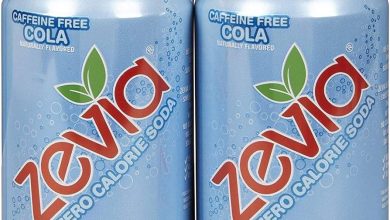Cookie Butter – Nutritional Information
Cookie butter is a delightful treat that combines the rich, spiced flavors of cookies with a smooth, spreadable consistency, making it a perfect addition to various dishes or enjoyed straight from the jar. Below is the detailed nutritional breakdown of cookie butter, designed to provide you with all the essential information to enhance your culinary experience.
| Nutritional Component | Amount per Serving |
|---|---|
| Energy | 467.0 kcal |
| Protein | 6.1 g |
| Total Fat | 18.8 g |
| Saturated Fats | 11.05 g |
| Carbohydrates | 68.9 g |
| Fiber | 0.8 g |
| Sugar | 20.24 g |
| Calcium | 29.0 mg |
| Iron | 2.22 mg |
| Magnesium | 12.0 mg |
| Phosphorus | 102.0 mg |
| Potassium | 111.0 mg |
| Sodium | 282.0 mg |
| Zinc | 0.38 mg |
| Copper | 0.2 mcg |
| Manganese | 0.17 mg |
| Selenium | 8.4 mcg |
| Vitamin C | 0.0 mg |
| Thiamin (Vitamin B1) | 0.37 mg |
| Riboflavin (Vitamin B2) | 0.335 mg |
| Niacin (Vitamin B3) | 3.19 mg |
| Vitamin B6 | 0.036 mg |
| Folate (Vitamin B9) | 6.0 mcg |
| Vitamin B12 | 0.36 mcg |
| Vitamin A | 165.0 mcg |
| Vitamin E | 0.58 mg |
| Vitamin D2 | 0.4 mcg |
Allergen Information
Cookie butter typically contains common allergens such as wheat (gluten), dairy, and soy. Depending on the brand and formulation, other allergens like nuts may also be present. Always check the label for specific allergen information to ensure safe consumption.
Dietary Preferences
While cookie butter offers a rich and indulgent treat, it may not be suitable for all dietary preferences. Here’s an overview based on various dietary requirements:
- Vegetarian-Friendly: Yes, most cookie butters are vegetarian as they do not contain animal products, apart from possible dairy content.
- Vegan-Friendly: No, unless specifically labeled as vegan. Traditional cookie butter contains butter, milk, and sometimes honey.
- Gluten-Free: No, unless specified on the packaging. Traditional cookie butter is made with cookie crumbs that often contain gluten.
- Low-Sugar: No, the sugar content in cookie butter is quite high, making it unsuitable for low-sugar diets.
- Low-Fat: No, cookie butter is high in fats, including saturated fat, which may not align with low-fat dietary preferences.
- Dairy-Free: No, regular cookie butter contains dairy. Dairy-free alternatives might be available but should be labeled accordingly.
Advice for Use
Cookie butter is incredibly versatile. You can spread it on toast, waffles, or pancakes for a decadent breakfast treat. It’s also delicious as a filling for sandwiches, a topping for ice cream, or even drizzled over fruit for an indulgent snack. If you’re looking to incorporate it into desserts, it pairs beautifully with cakes, cookies, and as a dip for pretzels or apple slices.
Conclusion
Cookie butter brings a rich, sweet, and spiced flavor that can enhance a variety of dishes. Whether you spread it, dip it, or incorporate it into a recipe, its indulgent profile is sure to satisfy your sweet tooth. Just be mindful of the high sugar and fat content, especially if you are following specific dietary guidelines. Always check labels to ensure it meets your specific needs and preferences. Enjoy this treat responsibly, and it will undoubtedly add a touch of sweetness to your culinary creations.










